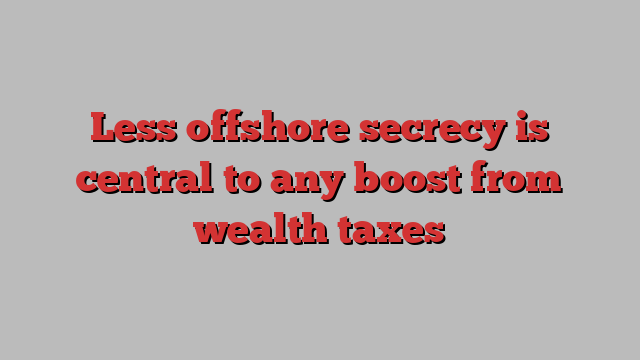
Unlock the Editor’s Digest for free
Roula Khalaf, Editor of the FT, selects her favourite stories in this weekly newsletter.
The writer is the founder of Tax Policy Associates, a think-tank
Offshore secrecy is a serious problem. Tax avoidance, tax evasion, sanctions evasion, drug cartels, corruption, questionable PPE contracts and untraceable political donations — all are enabled by offshore companies whose ownership and accounts are hidden from public view.
We shouldn’t just focus on “tax havens”. The two countries in Europe with the lowest corporate transparency ratings from OpenCorporates are not Jersey and Guernsey, they’re Austria and Spain. Sadly, mainland UK has form too.
The current government, like its predecessors, has committed to ensuring that British Overseas Territories and Crown Dependencies adopt the highest standards of transparency: public beneficial ownership registers. But, since 2018, progress has been painfully slow — and slowed further by a decision from the Court of Justice of the EU that prompted some member countries to close access to their registers.
What’s urgently needed is a way to accelerate beneficial ownership registers — everywhere. And we shouldn’t stop there. If you’re incorporating a UK company, then the directors, beneficial owners and accounts are all public. Why accept lesser standards for foreign companies doing business here? It’s in the interests of most countries for corporate secrecy to end. The reason that progress has been so hard is paradoxical: the more countries end corporate secrecy, the more valuable secrecy becomes and the greater the incentive on other countries to maintain it. And that’s where the bad actors flock.
This kind of problem has been solved before. In 2010, the US passed its Fatca law, with a simple concept: banks all over the world could voluntarily report US account holders to the IRS. They weren’t required to but those that didn’t would be subject to a 30 per cent US withholding tax. Now almost every country in the world automatically reports bank accounts to account holders’ home tax authority, with over €12tn of accounts reported every year.
A similar remedy could work today with our proposed “transparency levy”: 10 per cent applied by the UK to financial payments to “undisclosed companies” — those that don’t publish details of their directors, shareholders, beneficial owners and accounts. Undisclosed companies would be excluded from public procurement, too.
For many companies across the world, this would be irrelevant since they already publish this information in a home country corporate register. The critical element is that companies from countries without open registers could voluntarily publish their information at Companies House.
I doubt many would actually pay the levy. But the threat would end corporate secrecy for all companies doing business with the UK. This simple innovation could transform corporate transparency worldwide.
One obvious criticism is that the transparency levy could deter companies from transacting with the UK. This, however, is implausible. Legitimate businesses don’t need to hide their ownership. The cost of compliance would be extremely low (far less than Fatca). And I’m not aware of a single company that fled the UK when it introduced an open beneficial ownership register.
The transparency levy could be initially adopted by the UK alone, or together with other countries. Others could follow when ready, either creating their own system or simply cross-referencing Companies House.
Once a critical mass of countries started applying the levy, corporate secrecy would be a thing of the past. Instead of a race to the bottom, we’d have a “race to the top”. Offshore financial centres — and everybody else — would open up corporate registers in their own interests, so that none of their companies were subject to the levy.
The new foreign secretary, David Lammy, says he wants to make the UK the “anti-corruption capital of the world”. This is one way to do it.